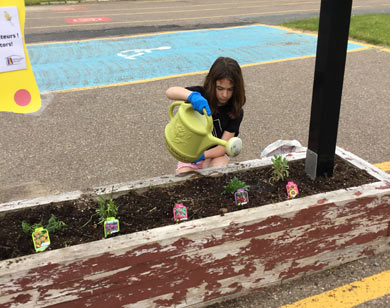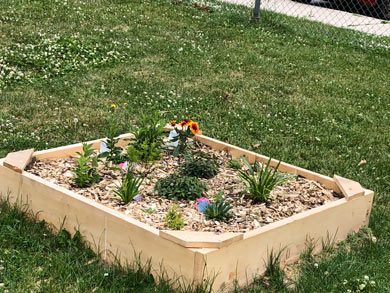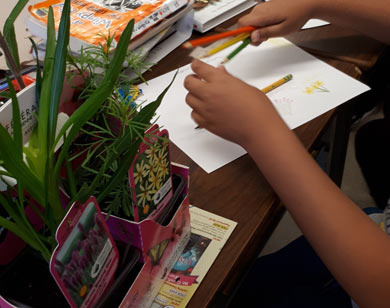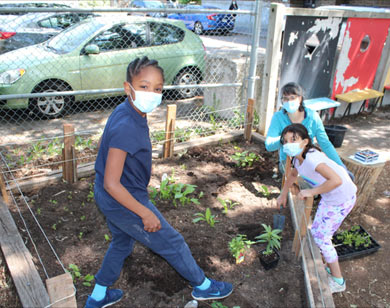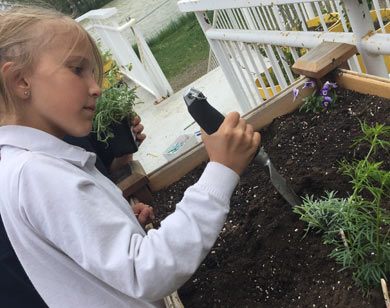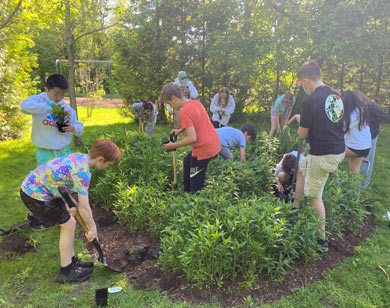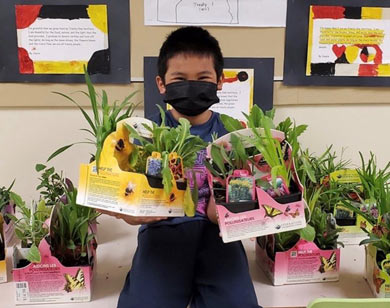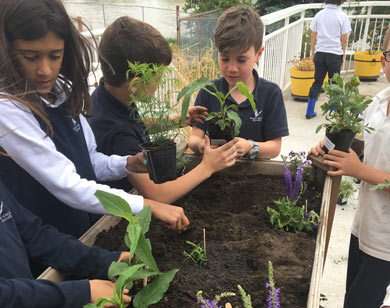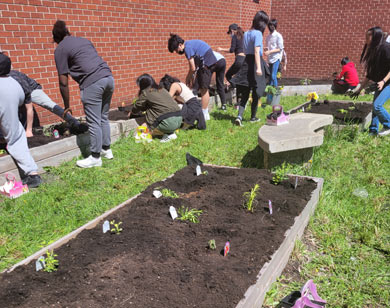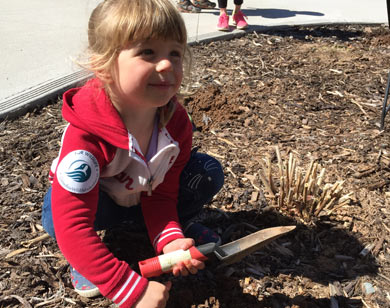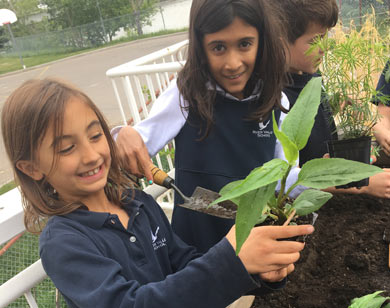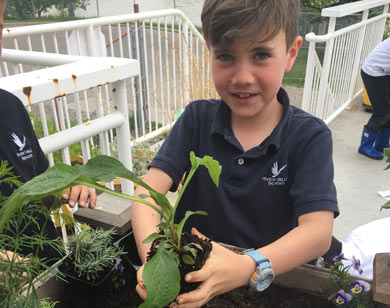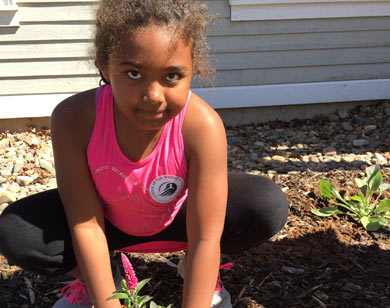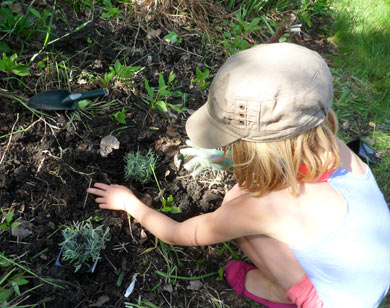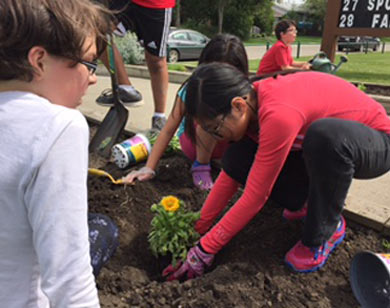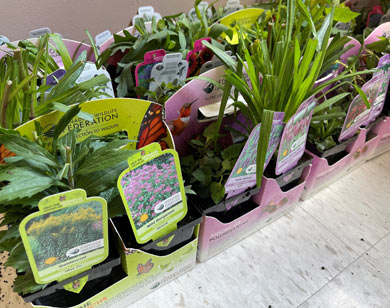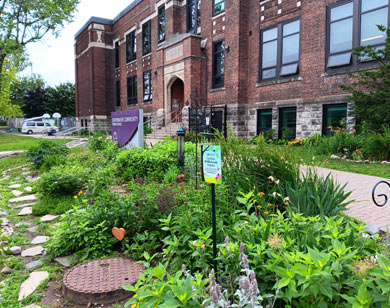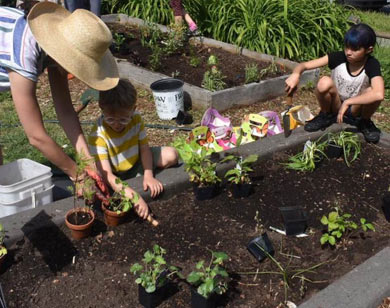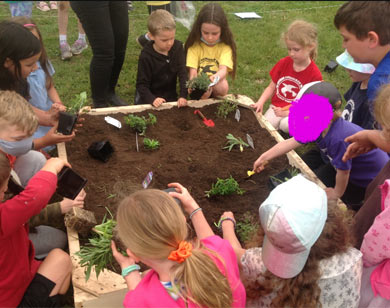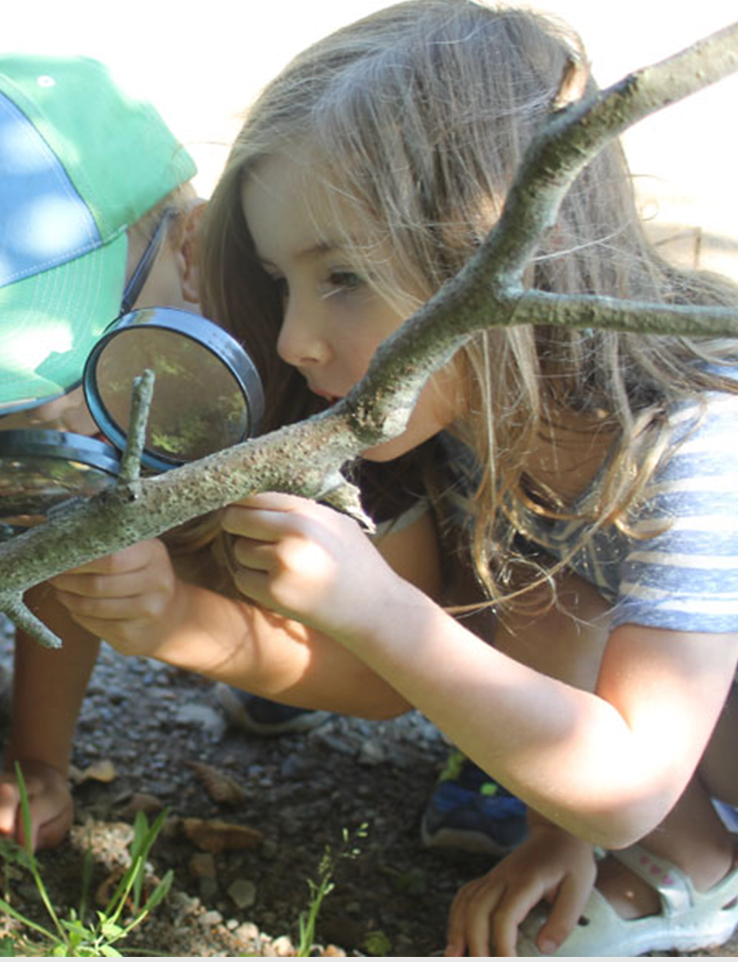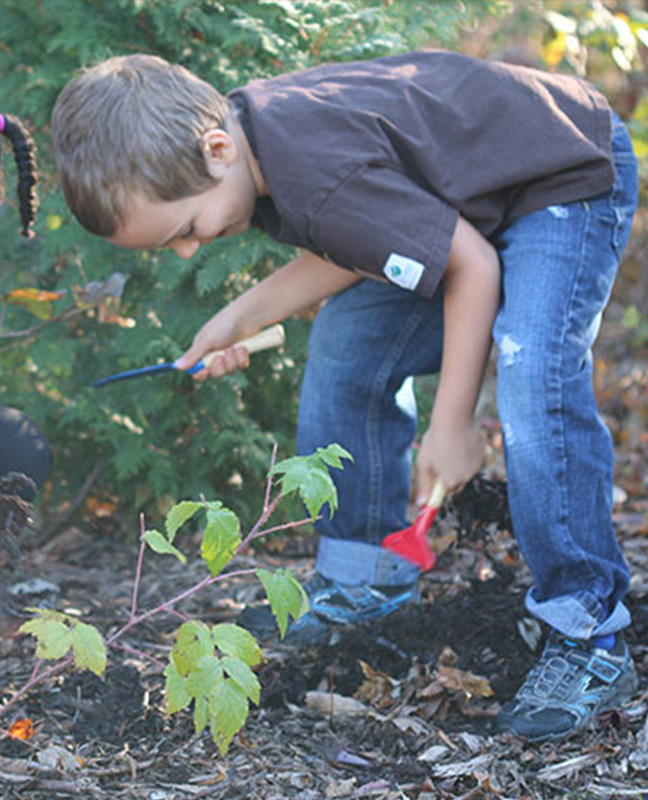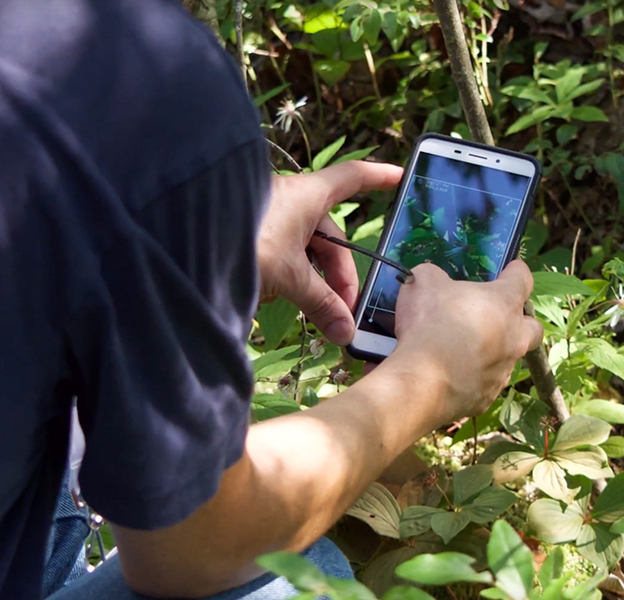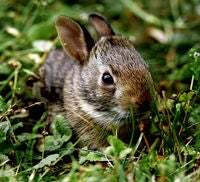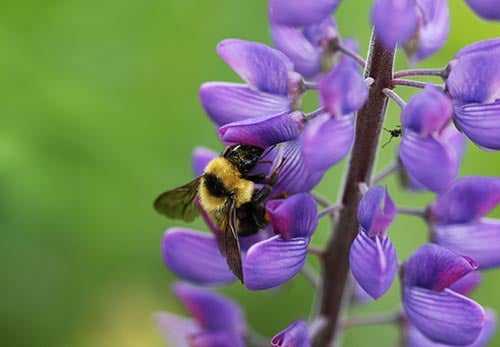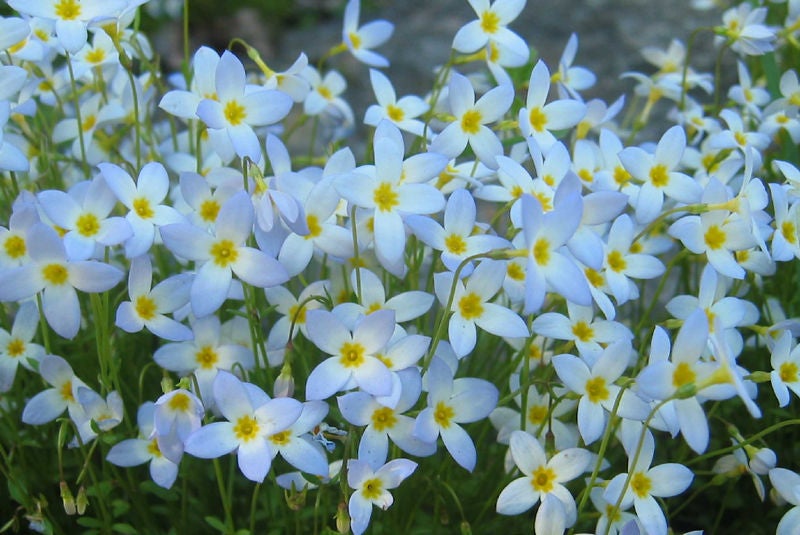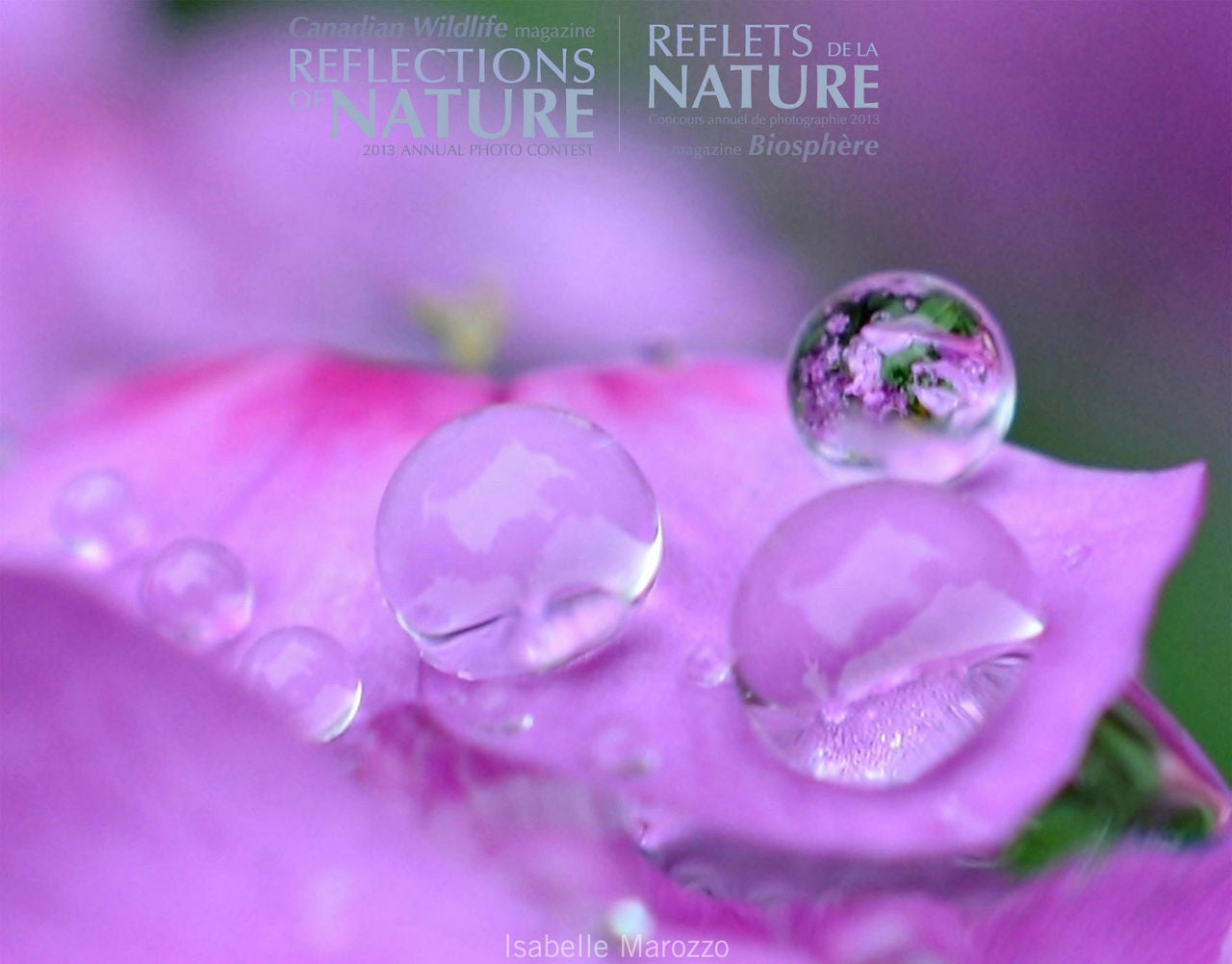WILD Spaces is a CWF education program that aims to connect educators and children to nature. Join us on our journey of helping students to engage with their own WILD Spaces!
1. Connect with outdoor space and foster a deeper relationship with nature.
2. Learn about local wildlife, habitats, and ecological needs.
3. Plan improvements to support pollinators and biodiversity.
4. Act by implementing a plan to enhance a WILD Space.
5. Reflect on the changes made.
Wildlife is everywhere! Every schoolyard outdoor space is a WILD Space. We share outdoor spaces with a wide variety of plants and animals.
CWF is connecting with native plant nurseries across the country to bring pollinator plants to schools. Tell us about your garden plans, and you could receive 40 pollinator-friendly plants native to your province. To be eligible for plant giveaways, subscribe to our monthly WILD Spaces eblasts, which are sent from January to June 2026.
Sign up today to follow the journey, access educational tools, and join a growing network of schools making space for wildlife.
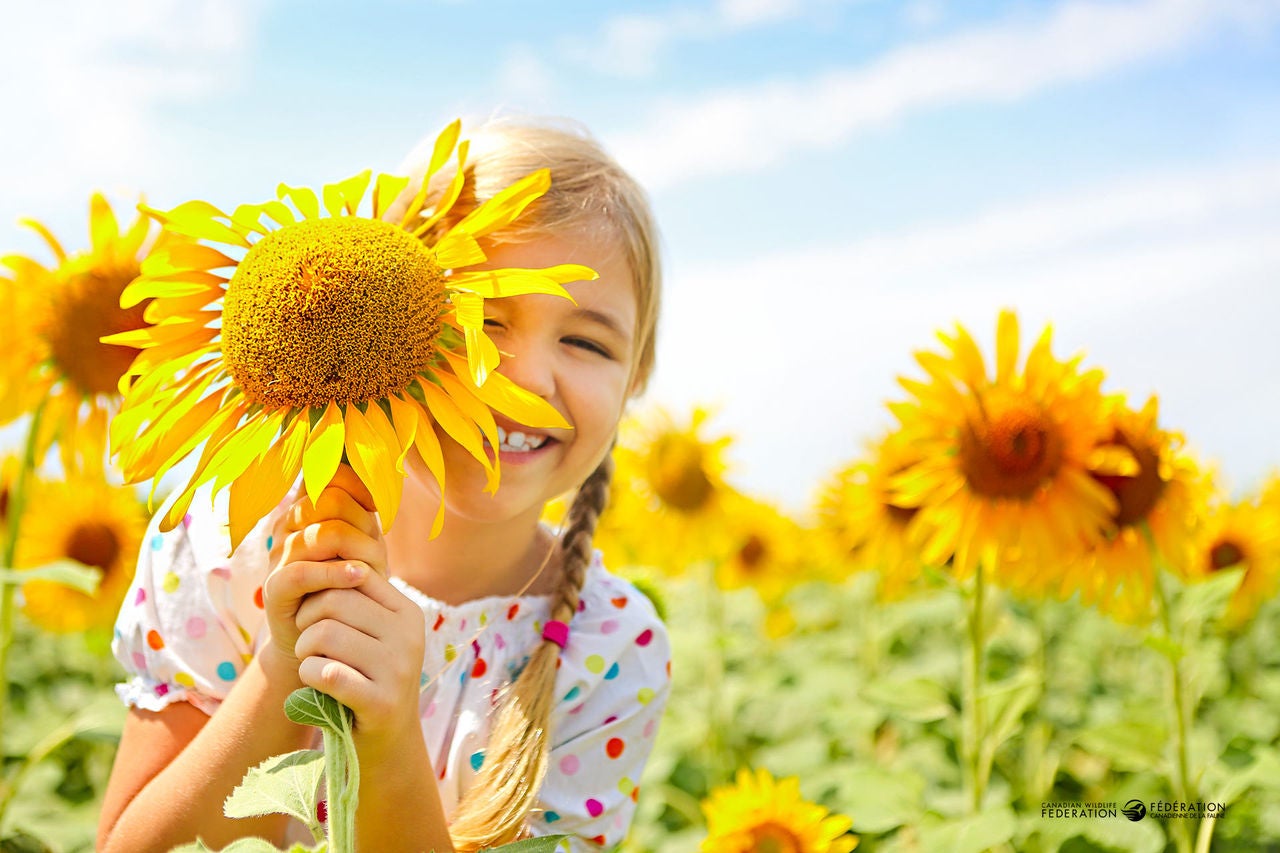
Impact of WILD Spaces
The Canadian Wildlife Federation has made the following impact since 2015:
746 schools (from 200+ schoolboards)
630 youth groups and families
45,339 Students
36,752 pollinator plants provided.
418 school gardens certified as a wildlife-friendly habitat
Why teach kids about pollinators?
Educators can help native pollinators and connect to nature with their students, to help shape a young generation of conservationists.
Pollinators like wild bees, hummingbirds and butterflies are important because they give us delicious foods, keep our ecosystems healthy and provide services that support our economy and wellbeing. However, they face challenges like pesticide use on feeding and breeding areas, habitat loss and climate change. As more land is altered for human activities, it’s important to create pockets of pollinator habitat where people live, work and play.
Simultaneously, children are spending longer hours indoors and are becoming disconnected from the natural world to the detriment of their physical and mental health and the future of our wildlife. Evidence shows that teaching outdoors can make educators happier, healthier, less likely to experience teacher burnout and can also help strengthen the bond between teachers and students. Time spent outdoors can increase students’ ability to concentrate, help with symptoms of learning challenges and may even improve overall test scores. Furthermore, children who have positive experiences outdoors with a trusted adult are more likely to develop a strong conservation ethic.
What You Can Do
This program is best suited for students in grades three to six but can easily be adapted for younger and older participants alike. Sign up to follow the program this spring or explore the program pillars:
Participate in the online classroom
Our online classroom has learning activities designed to help students learn about pollinators, discover how to create pollinator habitat in a garden and interact with participants from across the country, as they share stories and pictures of their journey on a safe platform.
You will have access to the online classroom when you sign-up for the program.
Create a pollinator garden
Putting knowledge into action will help students process the information they’ve learned about pollinators and creating habitat. The garden they create will no doubt help pollinators, but what may be more beneficial are the personal learning experiences and opportunities for nature connection that can happen in a garden. These experiences can generate important conversations within your community and instill a lifelong conservation ethic for participants. WILD Spaces will support you with resources to facilitate this learning experience and create a successful pollinator garden.
Engage in citizen science
Students document pollinators in the garden with a user-friendly, child-safe digital application by taking photos. The data your group collects will contribute to a growing wealth of knowledge of Canadian wildlife species.
Videos
Testimonials - Educators
Our plants arrived today! Thank you sooooooo much!! This will mean so much to our school community. We are right downtown Toronto, surrounded by concrete and fake grass, plastic and traffic. These plants will go a long way towards naturalizing our playground space and providing our students with hands-on science lessons. It also fits beautifully into our mental health curriculum by providing a calming natural space.
Educator, Beverley PS, ON
Thank you so much for the amazing pollinator plants you sent us at Trinity College School. Our Grade 7's did the first round of planting them in our outdoor classroom immediately beside our building. They have added them to a butterfly garden that previous Grade 7's made 15 years ago. Next week, we're taking the remainder of them to our "pollinator paradise" meadow which is 2 acres on the other side of our campus. We loved the little boxes they came in with the info panels! Such an incredible opportunity for us to do authentic regenerative work! Thank you.
Educator, Trinity College School, ON
-
- Plant needs and photosynthesis
- Composting
- and soil
- Alberta’s native bees (and that wasps and bees don’t always sting, and we don’t need to be scared.)
-
Your donation of plants helped to make our garden bigger. We are looking forward to seeing more wildlife at our school.
Educator, The Collingwood School, AB
Thank you soooooo much for the pollinator flowers. My class (Grade 4/5) planted together with our buddy class (Kindergarten) in our school's "designated pollinator" garden beds. They've been monitoring the flowers and we've been seeing some ladybugs and bees in the garden. Prior to planting, they read about the plants and created a mini-information poster on the pollinator kit.
Educator, William Cook Elementary, BC
Student Testimonials
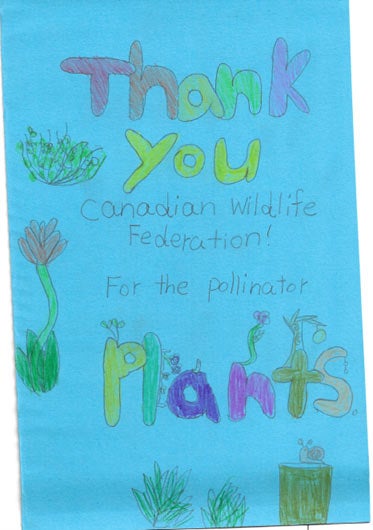
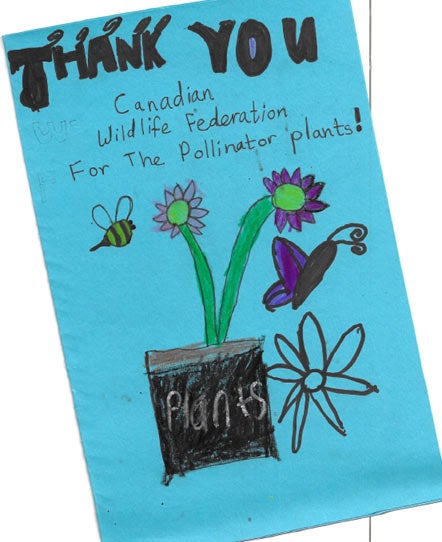
In the News
-
Celebrating Canada's nature leaders: Canadian Museum of Nature announces winners of the 2021 Nature Inspiration Awards
November 24, 2021 - The Canadian Museum is proud to announce the winners of its national Nature Inspiration Awards for 2021, which were presented during a virtual ceremony this evening.
-
Discovering Canada’s Hidden Wildlife with iNaturalist
January 13, 2026 - Frequent users of the iNaturalist app and its online platform understand the potential for discovery inherent in its use.
-
Celebrating 10 Years of iNaturalist Canada: A Decade of Tracking Species at Risk
January 13, 2026 - iNaturalist Canada turns 10! Since 2015, this platform has brought together a community to document and share observations of biodiversity across the country and has grown into a go-to tool for community science, helping to track wildlife populations, monitor changes in species distributions, and inform research and conservation efforts.
-
Locally extinct plant rediscovered in Canada thanks to iNaturalist
December 17, 2025 - A few community photos of a unique plant found in Southern Ontario has spurred a species reassessment by the Committee on the Status of Endangered Wildlife in Canada (COSEWIC). The species was one of 39 assessments recently carried out by the committee as they undertake the critical first step in endangered species conservation.
-
Falling for Salmon
December 11, 2025 - The Canadian Wildlife Federation was honored to be invited to participate in the very first He Sqyéytn (Salmon) Festival this fall in the beautiful community of Shulus, British Columbia.
-
Press Releases
December 9, 2025 - Get all the Canadian Wildlife Federation press releases on a variety of wildlife topics and issues.
View Garden Habitat Certification in a larger map
Certify your pollinator garden with CWF
The Canadian Wildlife Federation acknowledges the efforts of Canadians who make their home, school, business or community garden suitable for wildlife by certifying the space as a “Wildlife-friendly Habitat”.
You can showcase your school’s efforts to help pollinators by having the wild spaces you’ve created officially certified by CWF. Applicants who meet the criteria will receive a certificate and window decal in the mail.
Meet the Team
Eneze Baye-Imerion
Education Manager (Generalist)
“I’m passionate about outdoor experiential learning, liaising with partner organizations to promote social inclusion through nature engagement."

Related Resources
- 0
- 1
- 2







